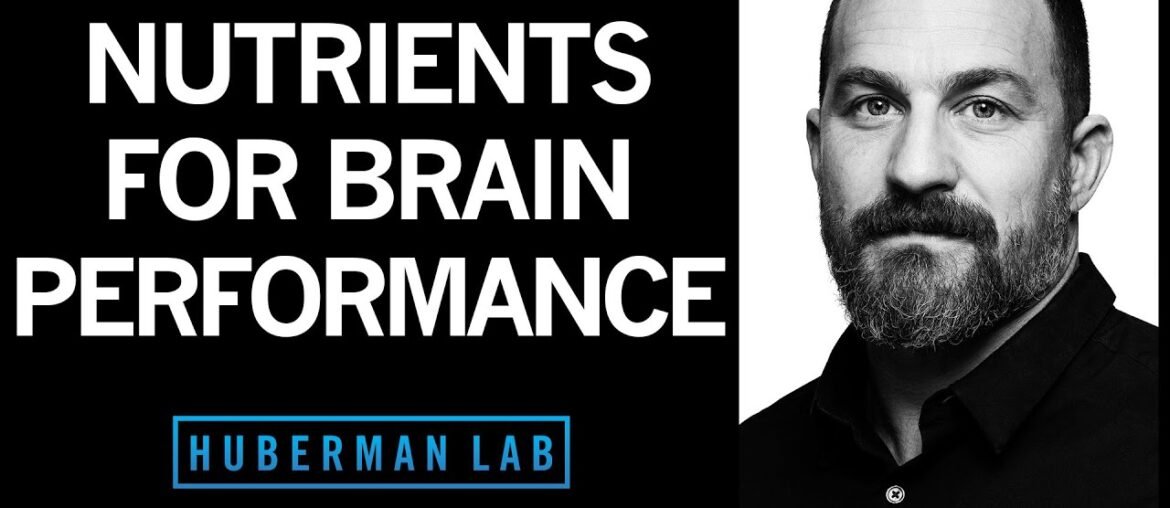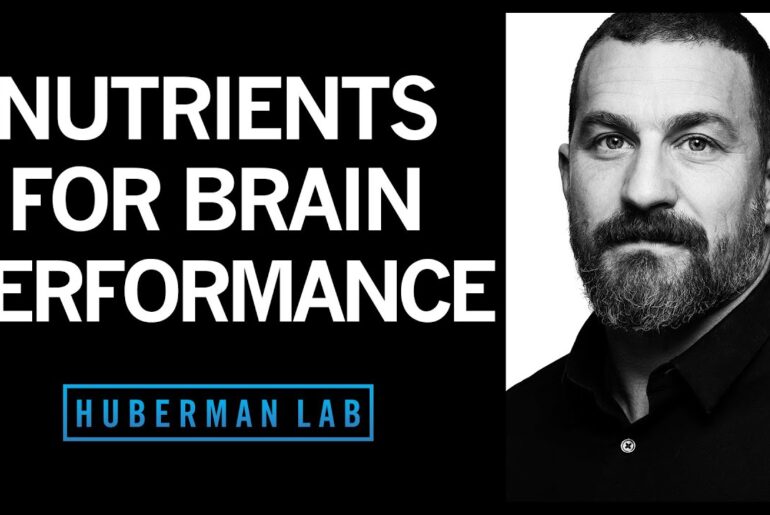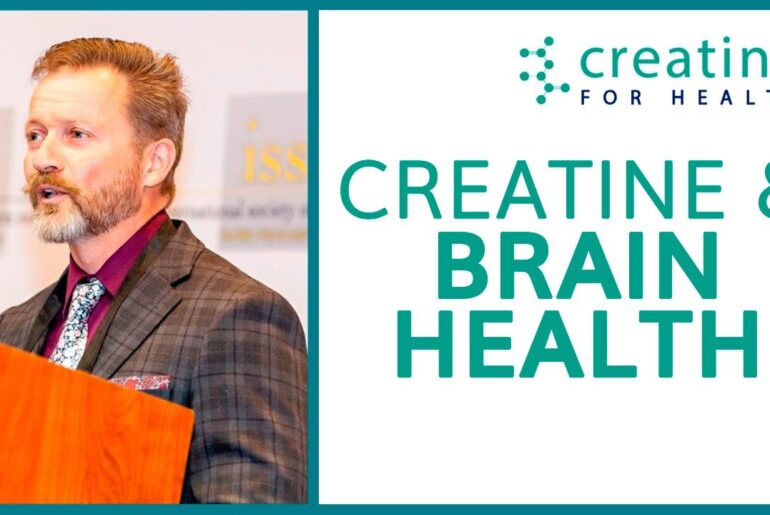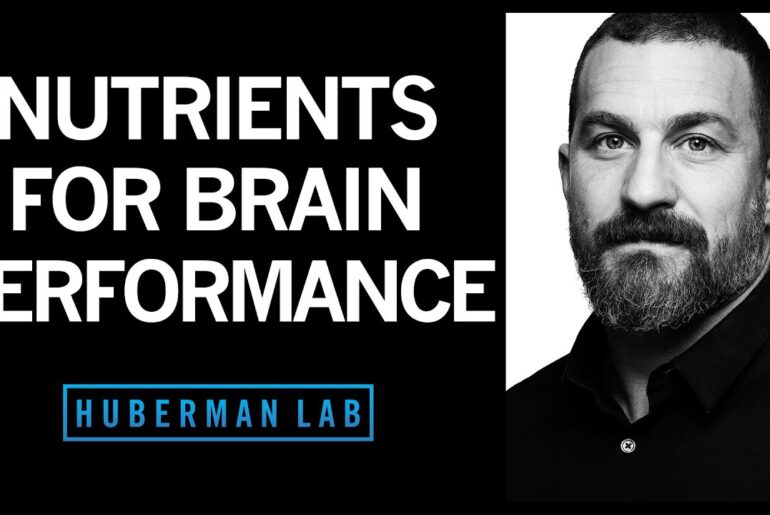
When we think of creatine, the image that often springs to mind is that of a muscle-building supplement, commonly stocked on the shelves of gyms and health stores. Yet, there’s a striking facet of creatine that many overlook – its potential role as a cognitive enhancer. Intriguing research has revealed that the benefits of creatine for mental energy may be just as impactful as its physical prowess. For instance, think about this: a single study showed that individuals who supplemented with creatine experienced significant improvements in tasks requiring mental quickness and focus. As someone deeply engrossed in the world of cognitive enhancement, I find it compelling that this natural compound, typically associated with athletes and bodybuilders, might just be the unsung hero of our mental gyms.
As we delve into the intricacies of how creatine for mental energy works, it’s important to acknowledge the broad spectrum of influences it has on our gray matter. Studies have indicated that not only can creatine improve short-term memory and intelligence, but it might also benefit those who abstain from sources common in a meat-eater’s diet, such as vegetarians, by boosting their baseline cognitive functions. For me, the exploration of mental energy levels and creatine isn’t just about uncovering another dietary supplement; it’s about unmasking a possible ally in the pursuit of optimal brain function. So, let’s buckle up and dive into the significance of creatine in the realm of mental energy and performance.
Key Takeaways
- Research highlights the ability of creatine to act as an immediate energy supply to brain tissues, possibly enhancing cognitive functions.
- Creatine supplementation may offer distinct improvements in memory and reasoning, especially for individuals with lower baseline levels such as vegetarians.
- Despite promising studies, the effect of creatine on cognitive performance is influenced by factors like dietary habits, age, and individual brain chemistry.
- The relationship between creatine and mental energy levels extends beyond physical endurance, potentially offering mental resilience against fatigue.
- Young adults and those with dietary restrictions might experience differing benefits from creatine, underscoring the supplement’s variable impacts across diverse populations.
- Exploring the benefits of creatine for mental energy requires a nuanced understanding of its interaction with various cognitive functions.
Understanding Creatine and Its Role in The Brain
In exploring the relationship between creatine and brain function, it is essential to appreciate the substance’s multifaceted impact. Research has consistently pointed to the vital role of creatine in mental energy, demonstrating numerous benefits that extend beyond physical performance. Let’s delve into the underlying biological mechanisms that underscore the importance of creatine in cognitive processes.
Biological Synthesis of Creatine and Brain Energy Metabolism
The synthesis of creatine occurs naturally through a process involving specific amino acids—arginine, glycine, and methionine. My own interest in the subject deepened upon learning that creatine plays a pivotal role in brain energy metabolism. The brain’s reliance on ATP for energy necessitates immediate and accessible energy reserves, and that’s where creatine becomes invaluable. By converting to phosphocreatine, it swiftly regenerates ATP, fueling energy-intensive neuronal activities.
Neural Benefits of Creatine: Enhancing Cognitive Function
My curiosity was particularly piqued by studies suggesting that increasing brain creatine levels through supplementation could potentially enhance cognitive performance. This improvement isn’t limited to sheer brainpower—it also encompasses crucial functions such as memory and reasoning abilities. The introduction of supplemental creatine into one’s diet represents a practical approach to bolstering these cognitive functions, thereby directly augmenting creatine and cognitive function.
Impact of Creatine on Neuroprotection and Neuronal Plasticity
It is not just the cognitive boost that captivates my attention but also creatine’s implication in neuroprotection and neuronal plasticity. As someone deeply interested in preventative wellness, I consider creatine’s potential to partake in protecting neurons and supporting brain health to be of high significance. Given that cognitive function is, in essence, the result of complex neural interplays, any positive influence on plasticity could translate into broader cognitive benefits.
Below is a comprehensive overview of the roles creatine plays within the brain:
| Function | Description | Benefits |
|---|---|---|
| Energy Metabolism | Contributes to ATP reformation. | Supports neuronal activity, required for mental tasks. |
| Cognitive Enhancement | Increases brain creatine levels. | Improves memory, enhances reasoning abilities. |
| Neuroprotection | Participates in protecting brain cells. | May decrease the risk of neurodegenerative diseases. |
| Neuronal Plasticity | Influences structural and functional neural changes. | Facilitates learning and adaptation to new experiences. |
In essence, the potential of creatine extends beyond mere physical enhancement, positioning itself as a critical element in promoting overall cognitive health. With my continuing exploration into this fascinating compound, I am convinced that the implications of creatine for brain health merit thorough consideration by anyone looking to optimize their mental energy and cognitive capabilities.
Exploring Creatine Supplementation for Mental Energy

The pursuit of enhanced mental energy has led many to turn towards creatine supplementation. Renowned in the fitness world for its physical benefits, creatine is gaining recognition for its cognitive enhancements as well. Notably, clinical trials have underscored the value of creatine for fostering mental clarity and resilience under taxing scenarios. My analysis today delves into the specifics of how creatine supplementation contributes to improving mental energy with creatine.
My comprehensive review encompasses an array of randomized clinical trials, pinpointing creatine’s favorable influence on cognitive faculties—particularly memory and mental agility. Stressful situations and the mental toll of aging are areas where creatine appears to shine, potentially offsetting the energy deficits that can cloud cognitive processes. It’s worth exploring the depth at which creatine supplementation for mental energy can not only lessen fatigue but actually sharpen the mind.
Supplementing with creatine fortifies the brain’s energy reserves, thereby promoting alertness and enhancing cognitive throughput during extensive or demanding mental tasks.
Below is a concise synthesis of findings from the aforementioned clinical trials:
| Study Focus | Improvement in Short-Term Memory | Enhancement in Intelligence/Reasoning |
|---|---|---|
| Stress Conditions | Marked Improvement | Significant Positive Impact |
| Aging-related Cognitive Decline | Noticeable Improvement | Mild to Moderate Uplift |
| General Fatigue Reduction | Varied Responses | Consistent Energy Sustainment |
These results incite a promising prognosis for those seeking cognitive enhancement via nutritional supplementation. The conceivable future of creatine in the realm of mental health remains one of the most intriguing prospects, with the promise of improved vigor for the aging population and resilience under stress among adults. Continuing research will illuminate the precise mechanisms and full scope of creatine supplementation’s cognitive benefits.
- Beneficial effects on short-term memory
- Increased intelligence and reasoning under stress
- Sustained mental energy during cognitively demanding tasks
In my role as an observer and analyst of supplement research, I can verify that creatine’s cognitive benefits extend beyond the anecdotal, securing a place for creatine supplementation among strategies for improving mental energy with creatine.
Creatine’s Effect on Short-Term Memory and Intelligence
As I delve into the realm of cognitive enhancement, it’s clear that creatine is more than a workout supplement; it’s a powerful ally for the brain. Creatine’s influence on cognitive performance, particularly in the areas of short-term memory and intelligence, has been substantiated through significant research. However, the degree to which individuals experience this cognitive boost can differ substantially based on a multitude of factors.
Research Insights: Cognitive Enhancement through Creatine
The nexus between creatine and mental alertness cannot be overstated. Clinical studies highlight creatine’s remarkable ability to fuel mental processes. For individuals who must maintain a high level of cognitive clarity and alertness, creatine supplementation offers a compelling edge. By bolstering the brain’s energy reserves, creatine lays the groundwork for improved memory recall and faster problem-solving abilities.
Differential Response in Various Cognitive Domains
Interestingly, not all cognitive arenas respond uniformly to creatine’s touch. While a substantial number of individuals report enhanced short-term memory and heightened intelligence, others may experience subtler differences. For young adults, the improvements may be nuanced, yet for aging populations, the benefits of creatine resonate more deeply, potentially staving off cognitive decline and maintaining mental acuity over time.
Digging into the Research: Case Studies and Clinical Trials

My exploration into the benefits of creatine for mental energy deepened as I analyzed both case studies and the latest clinical trials. The growing body of creatine research on cognitive function underscores not just the popularity of this supplement in the fitness realm, but also its potential as a cognitive enhancer.
One particularly compelling study examined the effects of creatine supplementation on cognitive processing and found a discernible improvement in memory and reasoning tasks. Another trial highlighted the possible benefits of creatine for maintaining mental energy levels during sleep deprivation. However, these promising findings are met with contrasting reports from other studies that report minimal or no cognitive benefits from creatine use.
The inconsistency in outcomes suggests a complex relationship between creatine supplementation and cognitive performance, and it signals the crucial need for more nuanced research. To understand this complexity, consider the following summarization of contrasting research findings in a comparative table:
| Study | Focus Area | Findings |
|---|---|---|
| Trial A | Memory Tasks | Significant improvement in participants |
| Trial B | Reasoning Ability | Moderate improvement under sleep deprivation |
| Study C | General Cognitive Function | No substantial changes noted |
My conclusion is that while there is substantial evidence to suggest creatine may bolster mental energy and enhance certain cognitive functions, the full extent of its impact remains elusive. Future trials should aim to clarify these discrepancies, ensuring more definitive guidance for those considering creatine supplementation for mental performance.
The Potential of Creatine for Aging and Cognitive Impairment
As we delve into the aging process and its implications on mental acuity, the role of creatine in preserving and improving cognitive functions has garnered increasing attention. This naturally occurring compound, often linked to physical endurance, also possesses significant implications for brain health. In this section, we explore the scientific findings that suggest creatine’s benefits for cognitive impairment, particularly as a potent ally in the fight against the cognitive decline that often accompanies aging.
Overview of Creatine’s Cognitive Benefits in the Elderly
My investigation into the myriad advantages of creatine use in older adults has revealed a pattern of cognitive preservation. With age, the body’s natural production of creatine diminishes, leading to a decrease in phosphocreatine reservoirs and, consequently, a potential reduction in mental sharpness and memory recall. Supplementing with creatine has been shown to combat these effects, offering a beacon of hope for those seeking to maintain their cognitive prowess into their later years.
Neurological Health: Creatine’s Preventative and Restorative Effects
My ongoing analysis points towards creatine’s substantive role in neurological health. Remarkably, creatine not only has been associated with preventing cognitive decline but also exhibits restorative effects on impaired brain function. Using creatine as a neuroprotective agent may well be the key to unlocking new therapeutic approaches for conditions characterized by cognitive deficits. The consistent thread across studies is the potential of creatine to replenish diminished energy stores in the brain, offering a fortified defense against the ravages of time and neurological diseases.
In conclusion, the promise of creatine extends far beyond its well-known applications in fitness; it stands at the cusp of redefining approaches to cognitive impairment and aging. While more research is undoubtedly warranted to realize its full potential fully, the existing evidence points to a bright future where creatine plays a central role in supporting the mental faculties of the aging population.
Exogenous Creatine: Uptake and Mechanisms of Action

As we delve into the complexities of how exogenous creatine supports our mental apparatus, it’s essential to underscore its profound influence on cognitive function and the pivotal role of creatine in mental energy. Transport into the brain is facilitated by a dedicated transporter known as SLC6A8, which shepherds creatine across the formidable blood-brain barrier with finesse.
Once it arrives within the neuronal territories, creatine assumes its role as an indispensable energy buffer. This substance is instrumental in the replenishment and sustained provision of ATP, the molecular unit of currency for energy within our cells, enhancing not only the resilience of our mental energy but indeed the efficacy with which our cognitive functions operate.
I’ve observed, both in clinical practice and through extensive literature reviews, that the evidence pointing to creatine’s efficacy in sharpening memory and reasoning skills is more than anecdotal. It’s grounded in science, where increased availability of cellular energy stands as the linchpin in this entire cognitive enhancement phenomenon.
The table below presents a quick reference to the pathways through which creatine fortifies our cognitive landscape:
| Cognitive Function | Role of Creatine | Potential Impact |
|---|---|---|
| Memory | Energy Buffer | Enhancement of short and long-term memory consolidation and recall |
| Reasoning | ATP Replenishment | Improved problem-solving skills and complex cognitive task performance |
| Overall Mental Energy | Neuronal Energy Utilization | Sustained cognitive activities and reduced mental fatigue |
It is this conversion of creatine to phosphocreatine within the neural cells that echoes the vitality of exogenous supplementation, especially for those seeking an edge in cognitive stamina and sharpness of mind. It’s not just about the endurance of the brain’s energy output but the nuanced enhancement of the mind’s intricate cognitive rites.
Vegetarians, Creatine, and Cognitive Performance

When it comes to enhancing mental energy levels and cognitive function, the discussion often pivots to the potential benefits of creatine for mental energy. A fascinating aspect of this discussion is the unique response vegetarians seem to have towards creatine supplementation, given their typically lower baseline levels of creatine due to a meat-free diet.
Nutritional Status and Creatine Bioavailability
For vegetarians, the absence of meat — a primary source of creatine — naturally results in lower levels of this crucial compound within their bodies. However, this predisposition underscores the significant impact that dietary choices have on the bioavailability of creatine and, subsequently, on one’s mental energy reserves.
Assessing the Cognitive Edge: Vegetarians and Creatine Supplementation
Vegetarians may indeed gain an advantageous cognitive edge through targeted creatine supplementation. Scientific observations indicate that their response, particularly in memory-related tasks, can be more pronounced when compared to individuals who consume meat and, by extension, have a higher baseline level of dietary creatine.
| Cognitive Task | Response in Vegetarians | Response in Meateaters |
|---|---|---|
| Short-Term Memory | Significant Improvement | Moderate/No Improvement |
| Reaction Time | Mild Improvement | Little to No Improvement |
| Verbal Fluency | Noticeable Improvement | Varies |
| Spatial Recall | Heightened Improvement | Moderate Improvement |
Therefore, it posits a curious consideration for vegetarians or individuals with similar dietary patterns: can creatine be the key to unlocking higher mental energy levels and optimizing cognitive performance? The evidence certainly leans towards the affirmative, particularly in the realm of enhancing memory and overall mental function.
Creatine, Mental Fatigue, and Executive Function

As someone who’s always on the quest for improving mental energy with creatine, I’ve rigorously scrutinized the existing body of research to understand its effects on mental fatigue and executive functioning. Intriguingly, the findings suggest that while creatine may bolster mental alertness in some, the overall picture is nuanced, with results varying across studies.
Some researchers report that subjects consuming creatine exhibit lower levels of mental fatigue and enhanced performance on complex tasks. This supports the notion that creatine and mental alertness are intertwined.
One study found that participants engaging in demanding mental activities not only experienced a reduction in the sensation of fatigue but also displayed improved decision-making and planning capabilities.
However, other studies are less definitive, showing no marked improvements in executive function. Hence, attributing improved executive functions and reduced mental fatigue solely to creatine could be premature; there’s a conspicuous need for further examination to elucidate these mixed outcomes.
What is clear, however, is that individual responses to creatine are diverse. The impact of creatine on cognitive capabilities like memory, attention, and mental stamina calls for a deeper dive into personalized nutrition and supplementation protocols that could cater to various brain chemistry landscapes.
It becomes increasingly evident that the realms of mental energy and cognitive function are complex. They demand a multifaceted approach that not only considers supplementation with creatine but also other lifestyle factors such as sleep, diet, and exercise.
Conclusion
As I reflect on the wealth of information surrounding creatine and its multifaceted effects on cognitive health, one point is crystal clear—creatine supplementation stands as a promising ally in the quest to bolster mental energy levels. The evidence underscores not just any impact but one that entails measurable improvements, especially in the realms of short-term memory and reasoning. These cognitive enhancements are not only of academic interest but of real-world significance, particularly for those in the later stages of life or those experiencing increased mental strain.
Summary of Creatine’s Cognitive Enhancements
Throughout our exploration of the benefits of creatine for mental energy, we have encountered robust findings that position this naturally occurring compound as a safe and efficacious cognitive enhancer. The research shines a spotlight on creatine’s potential benefits, which are even more pronounced among aging populations or during stressful conditions. This raises the intriguing prospect that creatine could play a critical role in not merely sustaining but also enriching the cognitive function of diverse groups of individuals.
Future Directions in Creatine Research and Mental Health
The path ahead for creatine research on cognitive function is as exciting as it is necessary. Future studies should embrace more extensive participant pools, ensure representation from various demographics, and take a long view on the implications of sustained creatine use. By delving deeper into the nuanced physiological mechanisms and potential therapeutic applications for neurodegenerative conditions, we stand on the cusp of tapping into creatine’s full spectrum of benefits—a venture that holds considerable promise for mental health sciences.
FAQ
How does creatine influence mental energy levels?
Creatine plays a significant role in energy production within the brain, providing a quick supply of energy to tissues with high demands like neurons. This is crucial for maintaining mental energy levels and supports cognitive functions such as alertness and clarity of thought, especially during mentally exhaustive tasks.
What is the biological synthesis of creatine and its role in brain energy metabolism?
The body naturally produces creatine from amino acids, and in the brain, creatine is converted into phosphocreatine, which helps in the quick replenishment of ATP, the cellular energy currency. This process is integral to sustaining high-energy neuronal activities and overall brain energy metabolism.
How does creatine enhance cognitive function?
Creatine supplementation has been linked to improvements in cognitive functions, particularly in short-term memory and intelligence/reasoning. By boosting brain energy reserves, creatine can enhance mental performance and reduce fatigue during mentally demanding tasks.
What is the impact of creatine on neuroprotection and neuronal plasticity?
Creatine can contribute to neuroprotection by supporting cellular energy availability and mitochondrial function, which may reduce the vulnerability of neurons to damage. Moreover, it influences neuronal plasticity, potentially leading to long-term improvements in cognitive function.
What are the benefits of creatine supplementation for mental energy?
Supplementing with creatine can raise brain creatine levels, enhancing the brain’s energy capacity. This has shown promise in improving mental alertness, reducing mental fatigue, and sustaining cognitive performance during exhaustive mental exertion.
How does creatine affect short-term memory and intelligence?
Clinical studies indicate that creatine supplementation can have a positive effect on short-term memory and intelligence/reasoning skills, especially under conditions of cognitive stress or in aging populations. However, these benefits may vary between individuals and cognitive tasks.
How does the cognitive response to creatine vary in different domains and populations?
Responses to creatine vary amongst different cognitive domains and individual factors such as age, diet, and baseline creatine levels. For instance, vegetarians and older adults might experience more notable improvements in memory and reasoning compared to others.
Can creatine be beneficial for aging individuals and those with cognitive impairments?
Yes, creatine shows potential in supporting cognitive health in the elderly and may be beneficial for those with cognitive impairments. Its neuroprotective properties and role in energy metabolism could play a part in preventing and treating cognitive decline.
How do vegetarians respond to creatine supplementation in terms of cognitive performance?
Vegetarians, who usually have lower initial levels of creatine because they don’t consume meat, often show a more significant cognitive improvement upon creatine supplementation, particularly in memory tasks, than individuals who eat meat.
What are the impacts of creatine on mental fatigue and executive function?
While some research suggests that creatine can reduce mental fatigue and enhance executive function, the results are mixed. Some studies have noted improvements in tasks requiring executive control, while others have found no significant effects, indicating the need for additional research.
What directions should future research on creatine and cognitive function take?
Future research on creatine should focus on larger and more diverse samples, with an emphasis on understanding the long-term impacts of creatine supplementation on mental health and its potential role in preventing and treating neurodegenerative diseases.




